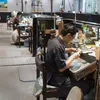Startup Guide Bangkok: how this buzzing city is repositioning itself for a new wave of entrepreneurs
This guidebook covers emerging startups, accelerators, coworking spaces, and support institutes in a leading culinary and creative hub of Asia.
The Startup Guide series of books, launched in 2014 by Copenhagen-based publisher Sissel Hansen, covers over 20 cities such as London, Barcelona, Lisbon, Oslo, and Miami. See our reviews of the guidebooks for New York, Berlin, Munich, Zurich, Paris, Johannesburg, Cairo, Tokyo, and Singapore.

Startup Guide Bangkok is spread across 200 pages and makes for an informative and entertaining read, with profiles of founders, coworking spaces, accelerators, and other ecosystem players. Supported by HUBBA and TechSauce Media as partners, the book also includes a three-page glossary of entrepreneurship terms.
“Thailand’s capital is brimming with creative spaces, exciting culinary adventures and must-see historical sites. Now, its fast-growing startup scene is another reason to discover the bustling city,” Sissel begins.
Thanks to high mobile and social media usage, the market is ripe for fintech and ecommerce startups, she adds. VC investment in Thailand reportedly crossed $1.2 billion in 2018. Notable social enterprises include Occa (online consultation for mental health), and SkillLane (digital learning for upskilling).
Thailand is not just the “Kitchen of the World” and the manufacturing hub of Southeast Asia, observes Amarit Charoenphan, Executive Chairman, HUBBA and Co-founder and CCO, TechSauce. The vision of “Thailand 4.0” focuses on startups and creative communities for local and regional markets.
Thai founders have learnt how to cope with a socio-political environment that is in constant flux and instability, Amarit explains. They are leveraging local strengths in tourism, healthcare, arts, automotive, food, and agriculture industries.
See also my coverage of the Bangkok Art Biennale, Royal Photographic Society of Thailand, Bangkok Art and Cultural Centre, EcoShop, Mechai Viravaidya exhibition, and Subhashok Arts Centre.
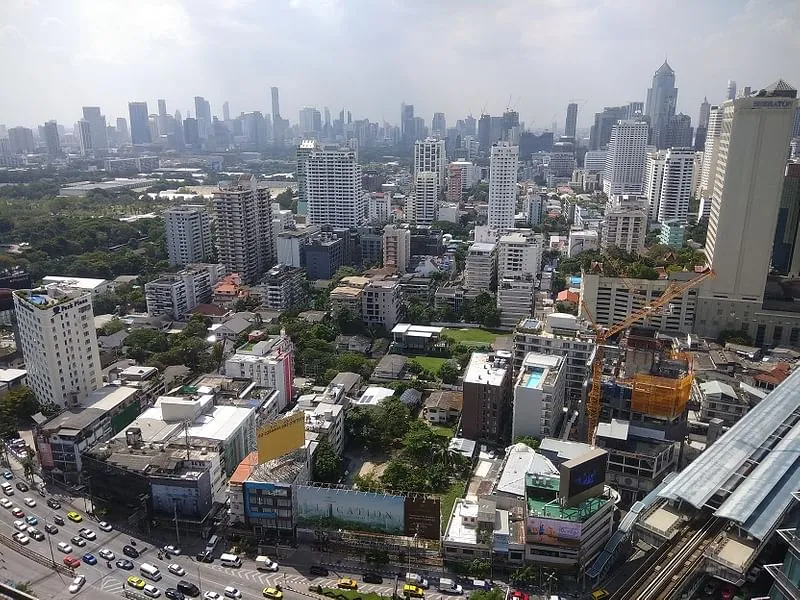
Overview
One section provides an overview of Thailand’s business environment, such as cost of living (affordable), food (delicious), tourist attractions (picturesque), bureaucracy (insatiable), public transportation (affordable though crowded), WiFi (ubiquitous at cafes), and language (Thai dominates, English is not well-spoken).
“In today’s Bangkok, it’s possible to eat a spicy stir-fry on the street, chase it with a craft brew from Oregon, and then hit a Thai boxing match or a contemporary art show,” the authors joke. In sum, Thailand is an easy place to combine work and pleasure.
In 2018, the Thai government launched a “smart visa” programme for foreign entrepreneurs. The government launched the Startup Thailand initiative in 2019, sponsored by the National Innovation Agency (NIA). It was held at venues like The Knowledge Exchange, Hangar by DTAC Accelerate, AIS Design Centre, Siam Innovation District, Thailand Creative Design Centre, True Digital Park, Growfish and NAPLAB.
NIA hopes there will be a Thai unicorn within the next three to five years. Notable startups are Omise, Ookbee, HotelQuickly, and aCommerce. In other sectors, the food-truck industry seems promising for small entrepreneurs.
I. Startup profiles
One section of the book profiles 11 startups based in Bangkok. They include Ooca (online services for mental health), Globish (skill development in spoken English), and GoWabi (platform for spa and beauty providers to promote off-peak slots).
CareerVisa offers counselling, assessment and events for career seekers. It has an entrepreneurship development programme with NIA called Founder Apprentice, and organises the annual Career Ready Boot Camp.
GetLinks connects tech talents with employment opportunities. It focusses on the ‘4 Ds’ – developers, designers, digital marketers, and data specialists. We started off as a “Tinder for professionals,” jokes co-founder Polpat Songthamjitti. It received initial funding from Silicon Valley’s 500 Startups accelerator programme.
PeerPower is P2P lending platform for credit to SMBs. QueQ provides queue management services for restaurants, banks and other crowded places. Seekster connects properties with service providers for cleaning and maintenance.
SkillLane is an online platform for learning skills in areas like marketing, real estate, language, presentation, public speaking, and finance. Skootar connects SMBs with motorbike messengers for the secure delivery of packages. ZipEvent is an online event-management platform for exhibitions.
Many of these startups have availed of funding from Dtac accelerate, GovTech Mission prize, Some have featured on TV shows like Tiger Wings and Shark Tank Thailand. Others have participated in programmes like AIS StartUp incubator, Intania Open Innovation Club, Krungsri Rise accelerator, and NIA’s Startup Growth Programme.
Investors active in these startups include CyberAgent Ventures, Wellesley Partners, True Incube Thailand, recruitment firms SEEK and SCG Investments, Expara Thailand, Alibaba, Korean VC BonAngels, and Google Launchpad.
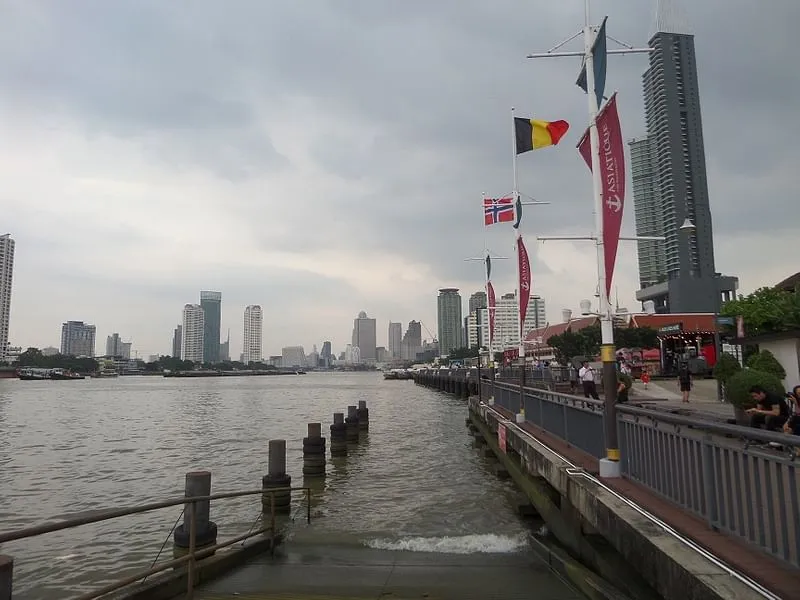
II. Startup ecosystem
Two sections of the book profile the support system for startups, ranging from coworking spaces to programmes at incubators and accelerators. For example, ImpacTech offers four-month accelerator programmes for five to 10 social impact startups.
Bangkok Bank’s InnoHub is a fintech accelerator programme for Thai and foreign startups, and is also a way to bring a “startup mentality” to Bangkok Bank itself. The 12-week programme includes mentorship and connects with Nest and Bualuang Ventures, the investment arm of Bangkok Bank.
Dtac Accelerate runs a four-month intensive bootcamp, with funding of around $50,000. Startups get free access to the Hangar coworking space, along with legal support and corporate links.
Sprint Accelerator Thailand is an accelerator and incubator for science and technology in Thailand. It has a focus on green technology, industrial IoT, advanced materials, and healthcare.
Leaders of these support institutions list a number of success factors for entrepreneurs, such as a well-rounded team with a ‘hacker, hustler and hipster’ (CTO, marketing, CEO). The product should have market validation and be scalable, with a solid execution plan.
Bangkok has several coworking spaces such as Glowfish Sathorn, The Great Room, The Hive, HUBBA-TO, Launchpad, Spaces, and WeWork Asia Centre. They attract a diverse community of locals and expats, and offer services ranging from nap pods and fitness sessions to film screenings and nightlife tours.

III. Expert insights
One section of the book provides tips from experts representing accelerators, tech giants, and startup support initiatives in the city. The advice covers business strategy, traction, and overall mission.
Digital Ventures is the innovation arm of SCB, one of the oldest and largest banks in Thailand. It includes the Discovery Lab, Digital Products research, and the corporate VC fund for fin-techs. The accelerator programme assists startups in big-data analytics, blockchain, machine learning (ML), and quantum computing.
“Think about traction, burn and competitors,” advises Paul Ark (Polapat Arkkrapridi), Managing Director of Corporate Venture Capital at Digital Ventures. “Think ahead and imagine your dream team of investors,” he adds.
“We position ourselves as an open innovation space,” says Nadia Suttikulpanich, Head of Fuchsia Innovation Centre for Muang Thai Life Assurance. “Right now, many insurance companies are very open to collaboration and co-developing products with startups,” she adds.
“Seek out collaborations with experienced industry players,” she advises founders. The portfolio includes MTL BetterCare, an app for diabetes management. Other startups offer telemedicine.
Pun-Arj Chairatana, Executive Director of NIA, says they aim "to transform Thailand into an innovation society”. There is a strong focus on social innovation. Its initiatives include Bodhi Theater, a digital art exhibition in a former Buddhist temple that teaches people about Buddhism.
“Present a tangible vision as opposed to using a collection of buzzwords,” he advises. “Keep your innovation open and inclusive,” he adds. Thailand has uneven development of sectors, and there needs to be a focus on areas like environmental disaster management solutions.
“Failure can lead to a new opportunity. Be open and flexible,” advises Jaime Faus, GM of Pullman Bangkok Hotel G. The hotel runs events like G Talk, which attract industry leaders and entrepreneurs in business, design, art, music, fashion. Every quarter, it hosts an exhibition at its Gallery 36, where local artists are invited to showcase their work for free.
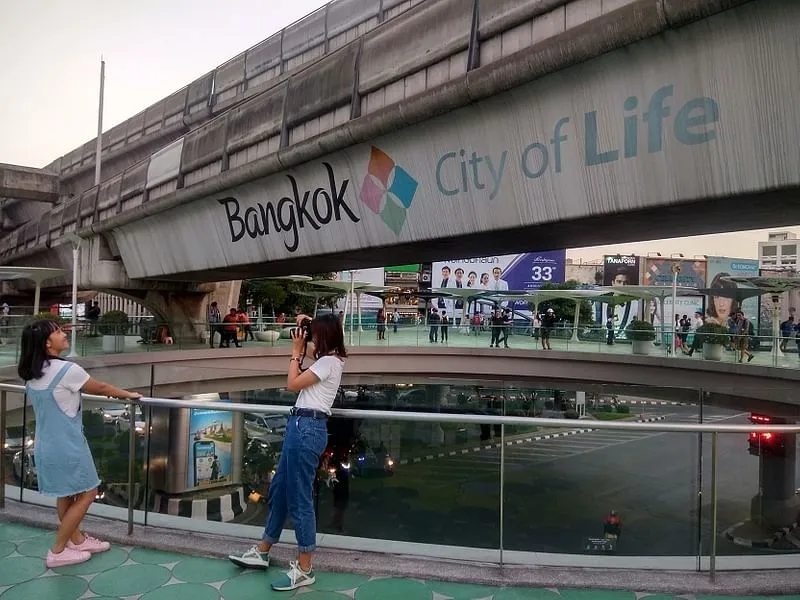
IV. Founder advice
The book features interviews with founders of five startups. They trace their entrepreneurial journeys, advice received, lessons learnt, and tips for the next wave of aspiring entrepreneurs.
Chonchayong Trairatkeyoon is CEO and Founder of Juiceinnov8, which uses sugar-reduction technology in juice making to produce healthier drinks. His earlier startups were FrappeDesign (leather accessories for devices) and FaceCard (OCR to convert business card text into apps).
“Find a real problem within the industry to solve, and ensure that there’s a customer out there,” he advises startups. It is also important to create a high barrier to entry against competitors.
Natavudh Pungcharoenpong is CEO and Co-founder of Ookbee, Thailand’s premier user-generated content platform. He also co-manages VC firm 500 TukTuks. Ookbee has 500,000 writers producing 10,000 new stories per day. It spans chat novels, TV and music.
“The future will be a combination of user-generated content and professionally generated content,” he predicts. For local founders, he advises building on their better understanding of the Thai market. “When an international company comes in, they will either try to acquire you or look at investing in you,” he suggests.
Patai Padungtin founded the construction management and workflow company BUILK. It has over 30,000 companies on its platform. Revenues come from ecommerce. B2B startups need to master local business dynamics to succeed.
“You need to understand political situations, the culture, and how people in local markets perceive your products,” he advises. Changing the behaviour of construction people takes some time, he cautions, and involves benefiting a wide range of decision-makers.
“When you’re a startup, you’re small, so you have to focus. Don’t be everything for everyone. You need to learn to filter feedback so you get what’s useful,” he advises. Trends to watch are green buildings and environmentally-friendly construction.
Suvita Charanwong co-founded digital communication agency RedLab, before co-founding micro-influencer platform TellScore. “I realised that you can both design and create stuff for people by bridging arts and science,” she recalls. Digital influencing calls for a shift from advertising to communication. But the online media field is full of challenges like digital ad fraud.
“We’ve had 17 years of experience learning how to break things down into small actions to avoid big mistakes,” Suvita explains. “People are one of the most difficult areas to get right. Good people can be expensive, other people can need a lot of training,” she cautions. Selecting the right people involves bringing more people into the interview process.
Arch Wongchindawest is CEO and Co-founder of Socialgiver, a platform for socially-conscious consumers who want to spend while supporting causes with social good. It connects them to hotels and restaurants. Her earlier art project was Ideacube, an art-and-ideas exhibition.
As important skills for entrepreneurs, these founders list creative problem-solving, lateral thinking, and mapping alternate outcomes. Humility and respect are key values as well, and the ability to incorporate ideas from other industries.
The founders appreciate the community spirit in Bangkok, affordable cost of living, good infrastructure. They call for more female entrepreneurs to enter the field, and for increased support from investors and government in early-stage startups, particularly in the social sector. There also challenges in market size due to constraints of language and culture.
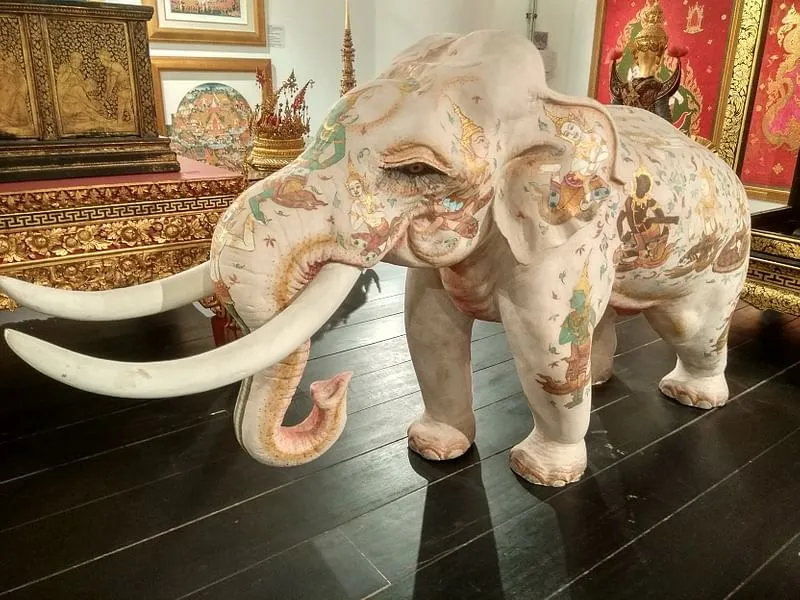
V. Schools
One section of the book outlines education support initiatives for startups in Bangkok. For example, King Mongkut’s University of Technology Thonburi has a Graduate School of Business and Innovation (GMI) and an Innovative Entrepreneurship Management (EPM). Sripatum University International College offers entrepreneurship programmes.
Assumption University, the largest and oldest international business school in Thailand, has a government-supported incubator programme called ABLE. Uree Cheasakul, dean of the business school, says the school has a DNA of ‘3 Es’ - ethical mind, entrepreneurial spirit, and English communication skills.
The schools urge aspiring entrepreneurs to be motivated, passionate, hard-working, versatile and open-minded. They should display a sense of curiosity and want to continually learn and improve themselves. Success derives not just from memorising texts.
VI. Investors
The last section of the book offers insights from eight investment firms. For example, Siri Ventures, an offshoot of real-estate developer Sansiri, has invested in hydroponics solutions firm Farmshelf. Fuchsia Venture Capital, Muang Thai Group’s corporate venture capital arm, has invested in HR flex-benefit and wellness platform CXA.
500 TukTuks is an accelerator and seed-stage investor, and stems from the VC fund 500 Startups in Silicon Valley. The people behind 500 TukTuks include Krating Poonpol, a former Google employee and founder of incubator Disrupt, and Moo Natavudh, founder of Ookbee.
Startups are like tuk-tuks in this regard – “lean, fast and a little bit dangerous.” Another earlier fund was 500 Durians.
Beacon VC is the wholly-owned corporate VC fund of commercial bank Kasikornbank. Its investments range from $1 million to $50 million. Portfolio startups include automated value-investing platform Jitta and event-management platform Eventpop. It has also invested in Grab and InstaReM.
Digital Ventures was established by The Siam Commercial Bank for the fintech sector. It has a $100 million fund and has invested in Pulse ID (Singapore) and Pagaya (data-driven asset-management startup in Tel Aviv and New York).
InVent is the investment arm of Intouch Holdings, which includes telecom and media giants AIS and Thaicom. Its investments range from $150,000 to $2 million, in startups like Ookbee (digital content platform with 10 million users and one billion page views per month) and Wongnai (restaurant review and deal platform). InVent is also eyeing new startups in 5G, IoT, smart health, game streaming and smart manufacturing.
Krungsri Finnovate is backed by Krungsri, one of Thailand’s largest banks. It allocates $30 million for fintech startups over a three-year period. It also runs the student contest Krungsri Uni Startup, and fin-tech accelerator Krungsri RISE.
Leaders in these funds explain that they are on the lookout for startups that show product-market fit, adaptability, trustworthiness, and foresight. The tech team should be inhouse, and the startup must understand broader issues like ecosystems, competition and regulation.
Timing is important as well – some investors want the startup to be in markets that are not saturated, but not too early either. Passion, integrity, willingness to partner, and scale strategy are key. Founders should be direct with investors and communicate the bad news as well.

The book ends with a directory of useful resources for startups, meetups groups and events. These include formal and informal events such as the Corporate Innovation Summit, Igniter Conference, SETA, Startup Grind, and even Drinkentrepreneurs.
The Digital Startup Institute was set up by the Digital Economic Promotion Agency (DEPA), a government institution responsible for fostering digital transformation in Thailand. It has invested in around 44 startups via the DEPA Startup Fund, and also runs a capacity building programme to boost the market potential of startups.
The Techsauce Global Summit is run by Techsauce Media. Its 2018 edition attracted 10,000 participants from over 30 countries, 200 speakers, 300 investors, and 200 journalists. Future editions aim to include a cultural festival with musicians, artists, filmmakers, athletes and LGBTQ communities.
“Buzzy, frenetic and fun, Bangkok, with its ever-improving infrastructure, a government increasingly open to foreign investment, low cost of living and a massive foreign population, ticks all the boxes as a vibrant startup hub,” the authors sign off.
In sum, the book provides informative and entertaining insights into Bangkok’s startup ecosystem, as well as a useful framework for other cities to reflect on and improve their own startup ecosystems.
Edited by Saheli Sen Gupta



